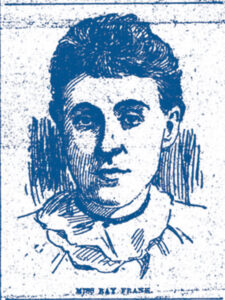Like many organizations, the Jewish Women’s Archive (JWA) has several origin stories. The seed of one can be found in the Berman Archive, in a 1994 paper by Leonard Fein called Smashing Idols and Other Prescriptions for Jewish Continuity. In this compelling piece, Fein prescribes a renewed commitment to social justice as the key to a meaningful Jewish future. A prescient argument, it was also marked by what was, to some, a glaring omission. A few months after its publication, at the Jewish Funders Network conference in 1995, Gail Twersky Reimer challenged Fein as to why his account did not mention a single Jewish woman, despite their rich history and leadership in movements for social justice. His response – “Where would I go to find out about Jewish women in history?” – spurred Reimer, along with feminist philanthropist and activist Barbara Dobkin, to found JWA.
Today, JWA provides millions of people around the globe with access to thousands of stories that center Jewish women’s experiences, not only filling the gaps in the historical record but also transforming our understanding of the larger narrative altogether. As JWA’s founders envisioned, no longer can anyone casually omit Jewish women’s contributions due to lack of knowledge or access. We have democratized and diversified the archive. JWA has also furthered Fein’s vision of a community energized by activism, encouraging Jewish women to understand themselves as historical agents and modeling how history can serve as a tool for social change.

The Berman Archive also implicitly reflects another reason for JWA’s founding: many records within its collection testify to Jewish women’s roles in shaping communal institutions and discourse. There are too many to list here, but a quick perusal of the site reveals the voices of 19th-century leaders such as Hannah Greenebaum Solomon and Ray Frank (sketch from 1893, left) at the 1893 Jewish Women’s Congress (sketch to the left appeared in the newspaper article “First Woman Rabbi,” San Francisco Chronicle, October 19, 1893., reports from Henrietta Szold on the building of institutions in early 20th-century Palestine, Justine Wise Polier on church-state issues and child welfare in the 1950s, the National Federation of Temple Sisterhood’s 1965 resolution on homosexuality, Blu Greenberg on Orthodox feminism, Rabbi Laura Geller on the impact of women in the rabbinate, and Ilana Kaufman on pursuing racial justice in the Jewish community.
The sources by Jewish women and about issues that are central to their experiences—such as sexual harassment and abortion, ritual and religious leadership, all topics that are addressed in far greater numbers after 1970—demonstrate the impact of feminism and the changing norms and concerns of the American Jewish community.
The Berman Archive even documents JWA itself, in an article about how JWA shaped the 350th anniversary of Jewish communal life in America, celebrated in 2004, by integrating women’s stories and contributions into the narrative of American Jewish experience.
Jewish women continue to make history every day, and our work to center marginalized voices remains urgent. I invite you to join us at jwa.org, to discover more about Jewish women’s lives, explore the past as a framework for understanding the pressing issues of today, and share your own story.
Judith Rosenbaum, PhD, is the CEO of the Jewish Women’s Archive, a pioneering organization that documents Jewish women’s stories, elevates their voices, and inspires them to be agents of change. A writer, educator, and historian, Judith earned her doctorate in American Studies from Brown University, with a focus on women, gender, and social movements. She teaches, lectures, and publishes widely on Jewish studies and women’s studies.

